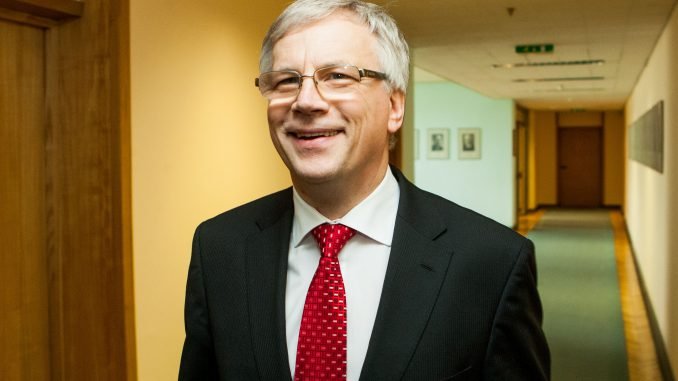
The long-term loan will finance the renovation of apartment buildings with a total surface area of 4 million square metres and 49 public buildings, mainly hospitals, health centres and community centres.
This is the second phase of the state-sponsored programme. In the first phase, implemented in 2009-2014 and also co-financed through a EUR 100 million NIB loan, energy efficiency was improved in 362 apartment buildings and 50 public buildings.
After signing the loan agreement, Lithuania’s Minister of Finance Rimantas Šadžius said: “Cooperation with the Nordic Investment Bank helps us ensure the long-term financing of the projects of importance to the public under favourable conditions. The loan will be used for the continuous project – Lithuania invests in the measures that allow us to save heat and electricity thus contributing to welfare and saving money.”
“The modernisation of public and residential infrastructure will greatly increase the level of comfort, improve productivity and help save both resources and money. This will definitely contribute to improving Lithuania’s competitiveness and protecting its environment”, said Henrik Normann, NIB president and CEO.
Some 85 percent of all governmental and municipal buildings were built before 1990 and are not efficient in from the energy consumption point of view. The energy efficiency programme aims to create energy savings of 36.6 GWh in public buildings by 2020. In Lithuania’s residential infrastructure, the share of buildings constructed prior to 1991 is 96 percent. For this sector, the programme has the objective of reducing the use of heating energy by 30 percent compared to 2004.
The loan agreement was signed following the meeting of the Bank’s Board of Directors held in Vilnius on 23-24 April. In 2014, the Bank signed loan agreements with three Lithuanian counterparties, including a 20-year EUR 34.8 million facility to Klaipėdos Nafta AB to finance the first LNG terminal in the Baltic region.

Be the first to comment